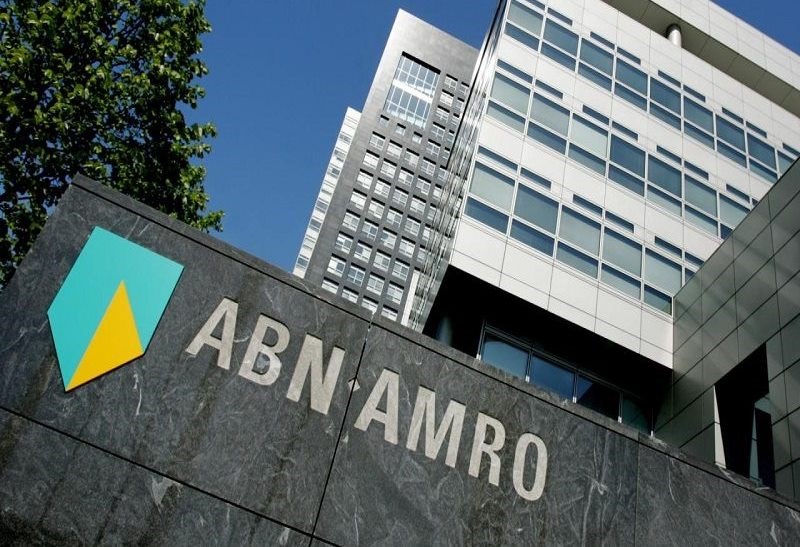Lukas Strobl: Bank stocks have traditionally been darlings of dividend-seeking investors. Then came a pandemic where central bank mandates closed those faucets for more than a year. Those restrictions were lifted, and dividends have been gushing back this full year earnings season. Here to discuss with me what's ahead for bank stock payouts are Morningstar analysts Niklas Kammer, who covers the UK and Nordics, and Johann Scholtz, looking after Eurozone. Thanks for joining me, guys.
Niklas Kammer: Hi.
Johann Scholtz: Hi.
LS: Niklas and Johann, last November, you forecast a rally in value stocks and banks as pressure mounted on central banks to raise interest rates. In the three months since, banks in Europe have rallied more than 10%. Now, the monetary policy picture is looking even more hawkish. What does this mean for owners of bank stocks?
NK: Yeah, that is correct, Lukas. So the monetary policy stance by the central banks in Europe has become much more hawkish in the last few weeks. In Europe, obviously, we had close to or below-zero interest rates for quite some time now. And this is clearly starting to reverse. And at the forefront of this development is really the Bank of England, which has already increased interest rates twice – at the end of last year, and in February this year – and the outlook is even becoming more hawkish by the day, it feels like to us. So we would expect even more rate increases throughout the year. And this is obviously a positive for banks. But we would also highlight that such rapid increases in interest rates can lead to somewhat mixed performances in the short term.
And you can clearly see this, if you look, for example, at the UK mortgage market, where you have funding costs increasing rapidly. So the market anticipates rate rises and funding costs are increasing for these banks. But it takes them some more time to adjust the asset yields or, for example, the mortgage rates that they charge customers on the mortgage they underwrite. So we expect over the next couple of quarters that the net interest income line might still have some mixed performances across the banks we cover. But if we look at it on a fundamental basis over the long term, these increases in rates will filter through eventually and will increase the profitability and therefore also their capacity to pay dividends to shareholders.
LS: Great. Now, Johan, the ECB has struck a more cautious tone than its peer central banks of late, what's the picture like for banks here in the Eurozone?
JS: Yes, I think broadly that similar dynamics plays out for the European banks, as for the UK banks. There's really two reasons why banks benefit from higher rates. Firstly, it's almost a question of sentiment or shareholder preference. In an environment where the cost of capital is increasing, people tend to prefer stocks, where the payoff is not that far into to the future, in other words, stocks with high dividend yields, of which most of the European banks qualify. And then secondly, as Niklas highlighted, you see net interest margins widening when interest rates increase. For European banks, however, I think this is a bit more of a dichotomy, than there is maybe in the UK, as not all banks benefit equally. Banks with substantial mortgage books, combined with a sizable retail deposit franchise, tend to benefit more than your more wholesale-orientated banks. And I think in Europe that would be especially the Benelux banks we think stand to gain the most from higher interest rates.
LS: Right. Give us some names. What are your top picks for income investors?
JS: On my side I like ABN AMRO, a Dutch bank very geared towards high interest rates, but then also with a sizable surplus capital that supports a generous dividend payout and we believe there's potential for a further return of capital. We estimate that about a third of ABN AMRO's market cap is surplus capital that it can return to shareholders in the future. And then secondly Intesa Sanpaolo in Italy: it's also reasonably geared towards interest rates because of its sizeable deposit base. It pays out 70% of its earnings as a dividend and it's just reconfirmed that, for the foreseeable future, it will maintain that 70% payout ratio. And that underpins a very nice dividend yield of around 7%.
LS: Niklas, what about the UK and the Nordics?
NK: Yeah, in the UK, we really have the banks there that we cover have smaller payout ratios than the ones that Johann just mentioned. But we still think income investors can find some good picks there. And most of all, we like Lloyds, in general for their high deposit base. But if we just look at purely at income-focused investors, we would highlight NatWest Group. They also have a very dominant deposit base, which as Johann highlighted will benefit from rising rates. And they also have done significant strides in improving their operating performance in general, which we only think will continue. All this will lead to higher payout in the future as earnings increase. And at the same time, they have a very solid capital base, and a lot of excess capital.
On the Nordics side, we like to highlight Handelsbanken. Handelsbanken is one of the, if not the most risk-averse bank in terms of lending. They're highly geared towards interest rates as well, and have a pretty big mortgage book. It tends to be a very safe bet for investors looking for very stable income. So we would highlight Handelsbanken across the Nordics.
LS: So quite a few options, and it looks like things won't get boring for income strategies after all. Thanks for tuning in. For Morningstar, I'm Lukas Strobl.






















